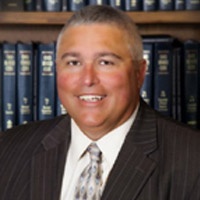Dalton Criminal Lawyer, Ohio
Michael Boske
✓ VERIFIEDCriminal
Having tried hundreds of cases, Michael Boske is one of Canton's most experienced trial lawyers, with extensive knowledge of the local courts, judges,... (more)
Mark Franklin Graziani
✓ VERIFIEDBankruptcy & Debt, Estate, Lawsuit & Dispute, Criminal, Divorce & Family Law
Mark Graziani is a practicing lawyer in the state of Ohio. He received his J.D. from University of Akron School of Law in 2014 and is licensed in Ohio... (more)
Louis John Gigliotti
✓ VERIFIEDCar Accident, Personal Injury, Criminal, Estate
Louis J. Gigliotti Jr. believes in fighting vigorously for his clients
Keith Allen Warstler
Estate Planning, Family Law, Criminal, Personal Injury
Status: In Good Standing Licensed: 24 Years
Erich Jason Maier
Federal Appellate Practice, Family Law, Criminal, Bankruptcy
Status: In Good Standing Licensed: 29 Years
Scott Eugene Fellmeth
Accident & Injury, Criminal, Estate, Traffic
Status: In Good Standing Licensed: 45 Years
Amanda Lynn Kuhn
Litigation, Government, Criminal, Religious Discrimination
Status: In Good Standing Licensed: 20 Years
Matthew William Onest
Federal Appellate Practice, Criminal, Collection, Personal Injury
Status: In Good Standing
Christopher Aaron Schmitt
Federal Appellate Practice, Family Law, Juvenile Law, Criminal
Status: In Good Standing




